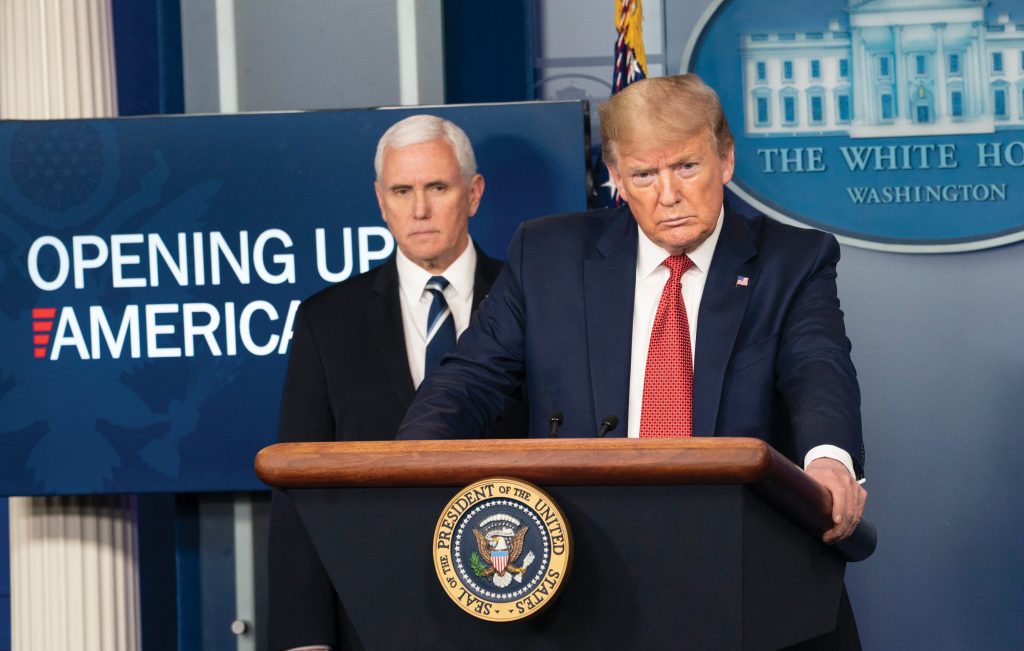Can the Intelligence Community Save Democracy?
Amid an escalation of covert warfare tactics changing the global balance of power, perhaps Western intelligence agencies could start counter-operating.

White House/Flickr
Lisa Van Dusen/For The Hill Times
May 21, 2020
Among the questions that loomed after September 11, 2001, was how intelligence agencies would handle the power they’d acquired through a confluence of unprecedented public license, massive funding, and new technology.
As the internet fuelled a post-9/11 revolution in covert capabilities, that explosion in resources funded a multinational empire of contractors, freelancers, and off-the-books operatives. The degree to which that power—telegraphed in the early post-9/11 narratives of the Iraq intelligence fiasco and the reporting that legitimized it—undermined democracy in the world’s sole superpower was evident in the hacking of the Senate Intelligence Committee by the CIA over the post-9/11 torture report and the Edward Snowden revelations of global surveillance by what had become a borderless behemoth of intelligence agencies, including Canada’s.
Two decades on from 9/11, it’s hard not to be struck by the irony that a fateful power shift from elected to unelected hands in Washington and elsewhere, justified by the need to protect democracy and uphold freedom, has produced a global bedlam of bullying authoritarians, stolen elections, weaponized imbeciles, and hourly instalments of intelligence-style, intelligence-insulting narrative warfare that has commodified deceit on an unprecedented scale.
The intelligence community has been the dog that didn’t bark in the battle against what has proven to be a greater threat than terrorism to the rules-based international order: a reality-hijacking cocktail of corruption, propaganda, and—for lack of a less melodramatic, more accurate term—weaponized evil; a Third World War waged with an industrial escalation of disinformation campaigns, deception operations, psychological warfare, and every other trick in Espionage for Dummies.
If the intelligence community isn’t fighting fire with fire in a war it’s ideally equipped to win, what is it doing?
Much of this has been rationalized by the concurrent, two-decade expansion of China’s power as the bad cop in a systematic degradation of democracy and American influence across the globe. In their annual threat report before Congress in February 2019, U.S. intelligence officials offered an explanation for the past two decades preposterous even by today’s stratospheric standards of preposterousness.
“While we were sleeping in the last decade and a half, China had a remarkable rise in capabilities that are stunning,” said then-director of national intelligence Dan Coats.
You do not have to have spent the past two decades as an intelligence asset, target, or operative to know that the post-9/11 era has been anything but drowsy for spooks. What were those doubled intelligence budgets spent on if not the gathering, analyzing, and acting upon of information about a geopolitical power realignment so obvious to the naked eye that some of us wrote quite a few words about it in real time, including from Washington? The War on Terror didn’t come with blinders to the rest of reality and was not conducted by somnambulists.
How does a dog not only not bark but not twitch during an assault so brazen that it produced the relentless, deadly lunacy of Donald Trump’s presidency … and still spend $500 billion? If the intelligence community wasn’t bugging, tracking, hacking, and counter-operating against global anti-democracy interests, who was it bugging, tracking, hacking, and counter-operating against?
Now, with a global pandemic being leveraged as a power grab by those same anti-democracy interests and a presidential election under attack by not just Russia and other usual suspects, but also by the incumbent himself, can the intelligence community marshal its formidable outcome-curating powers to thwart corruption, restore sanity, and save democracy?
Taking public responsibility for the integrity of the process that will produce November’s U.S. election result might be a good start. If that fails, at least people will know precisely what sort of war they’re dealing with. It seems—so far, at least—it’s not a cold one.
Lisa Van Dusen is associate editor of Policy Magazine and a columnist for The Hill Times. She was Washington bureau chief for Sun Media, international writer for Peter Jennings at ABC News, and an editor at AP in New York and UPI in Washington.
